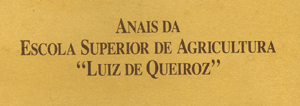Studies were carried out to establish the effects of exogenous growth regulators on Vitis (labrusca x vinifera) 'Niagara Rosada' fruiting. The investigations were done in the Jundiaí Research Station, Agronomic Institute State of São Paulo, always using disease-free vineyards of good productivity. The morphological transformations of clusters were studied under the following aspects: weight, length and width of cluster; weight, length average and width average of berries: length average/width average ratio of berries; length and diameter of rachis; width of cluster minus berries; length and diameter of secondary rachis. The yield for the first half of the period from flowering to maturation was first determined. The same characteristics were determined at the time of maturity plus the number of berries, number of seeds, total sugars, total acid, Maturity Index and reducing sugars in samples of all treatments. The experiment was conducted in order to determine the doses that resulted in the most beneficial effects, always using applications by immersion of the inflorescence. In the experiment was realized applications of (2-chloroethyl) trimethylammonium chloride (CCC) and succinic aeid-2, 2-dimethylhydrazide (SADH) at concentrations of 50, 100, 250, 500, 1000 and 2000 ppm; CCC 500 ppm plus SADH 500 ppm and nontreated, 5 days before flowering, in 1971. The concentrations of CCC applied before flowering did not affect favorably cluster morphology under the conditions of the experiment. Application of SADH at 250 ppm before flowering increased the cluster weight and length, berries number and weight, and seed number. In the first yield treatment of 1000 ppm of SADH increased the cluster weight and lenght, berry weight and rachis lenght.
• An. Esc. Super. Agric. Luiz de Queiroz 31 • 1974 • https://doi.org/10.1590/S0071-12761974000100030 copy

 Effects of growth retardants on fruiting of 'Niagara Rosada' grapes
Effects of growth retardants on fruiting of 'Niagara Rosada' grapes